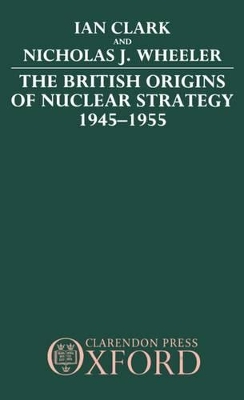Why did Britain decide in 1947 to build an atomic bomb? What military plans were there for using it? This neglected dimension of British nuclear policy is assessed in detail for the first time, using confidential records - including those of the Chiefs of Staff - which have become available for the entire post-war decade.
The emergence and evolution of British strategic ideas about nuclear deterrence and targeting are documented and analysed by Ian Clark and Nicholas J. Wheeler, who also argue that British thinking was distinctive and made a much more substantial impact on nuclear strategy than American accounts would suggest. They reveal that, from a perspective unique to British circumstances and traditions, British officials made a significant contribution to early thinking about nuclear weapons.
This study covers the early shift from a 'countervalue' to a damage limitation targeting posture, the assessment of the Soviet threat, the impact of the Korean War, the Global Strategy Paper of 1952, the decision to manufacture a hydrogen weapon in 1954, and the inter-service rivalries in the mid-1950s about the nature and size of the British strategic force. As well as providing a survey of British thinking, it is unusual in its focus on strategic comparisons between Britain and the United
States.
- ISBN10 0198275412
- ISBN13 9780198275411
- Publish Date 25 May 1989
- Publish Status Active
- Publish Country GB
- Publisher Oxford University Press
- Imprint Clarendon Press
- Format Hardcover
- Pages 272
- Language English
